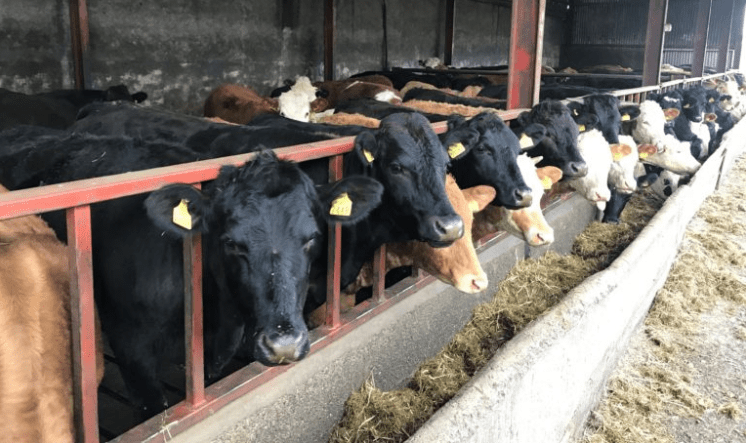Teagasc has released figures on the income situation suckler and beef farmers faced in 2018, as part of its National Farm Survey for that year.
“Cattle Rearing” (suckler) systems were hit hardest, recording a 22% dive in average income, which amounted to €8,318 – the lowest average income among the different enterprises.
This was a reduction on the €10,642 in 2017, with a sharp rise in production costs the main driver.
Teagasc’s “Cattle Other” – incorporating a range of other cattle production systems such as finishers – also took a hit to the pocket, albeit to a lesser extent at the time, recording an 11% reduction in income, which amounted to €14,408 on average, down from the 2017 figure of €16,115.
Spending on concentrate feed increased by 12% on average to €3,965, with purchased bulky feed expenditure also up. Fertiliser expenditure rose by 11%, due to both an increase in usage and price, and the average farm spending €2,489 in 2018, according to the report.
The report was published today, Thursday, May 30, at an event in the Davenport Hotel in Dublin city centre.
Previous reports
This report follows on from Teagasc’s Outlook 2019 report – released in December – which predicted a 15% average drop in farm incomes across all sectors.
Teagasc economists had also estimated that feed costs for beef farmers had seen a sharp rise last year.
The fall in farm incomes in 2018 had been attributed primarily to the extreme weather we experienced last year.
Beef farmer incomes have been rarely out of the headlines over the last number of months.
Perhaps the most important development on that front was the announcement of a €100 million aid fund for beef farmers.
That fund is designed to offset the “market disturbance” brought on by Brexit and the resulting uncertainty.
This money will be funded from two sources: The European Commission will fund €50 million, while the Irish Government will match that figure.
